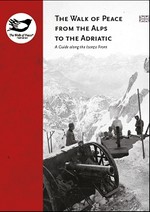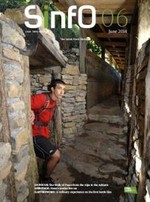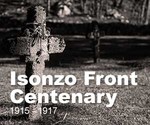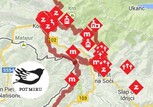Contribution of Janko Veber, former President of the National Assembly, on the 100th Anniversary of the beginning of the First World War
This year marks the 100th anniversary of the outbreak of the First World War, a war that shook the foundations of Europe and the international distribution of power and completely changed the political map of Europe. Its devastating machinery swallowed almost all material and human resources. It also affected Slovenians as individuals and as a nation. This truly Great War, which had an unimaginable impact on the whole 20th century and the development of Europe, took more than 16 million human lives, including those of 35,000 Slovenian men and boys who fought on the side of their Austro-Hungarian "stepmother". Nevertheless, they joined the battle in a patriotic spirit. They were a reliable tool of the Austro-Hungarian army, distinguished for values such as faith in, and loyalty to, the emperor and government; they also deeply believed in Horatio's words "It's sweet and fitting to die for one's country…”. But hell awaited them in the battlefields and mud-filled trenches. Numerous diary entries of our boys show that they experienced horror and torment that can hardly be described or imagined. Trench warfare caused enormous, previously unseen human and material loss and left behind devastated lands, a decimated male population, millions of dead and mutilated, innumerable refugees, affected families and countless mourners. However, all these tragedies failed to resolve the problems that had caused the war.
The battlefields of the Great War claimed more Slovenian lives than any war before it. The Isonzo Front, on which Slovenian boys and men defended their land, was the one that had the greatest effect on the nation. The front, located in the area between the Adriatic and Mt Rombon, claimed the highest number of victims among Slovenians and left almost complete devastation in its wake. Even today, 100 years later, the Isonzo Front is recorded in history as the biggest mountain battle in history and the greatest armed conflict on Slovenian territory.
The First World War not only brought desolation and victims, but also decisive changes to Slovenians. The national framework of which they had been part for centuries disintegrated. As a result of peace treaties concluded among the major forces, to which we were merely inconsequential pawns, a considerable part of the national territory was lost. Although Slovenians entered the 20th century with a strong regional consciousness, divided into the people of Kranjska, Štajerska, Koroška and Primorska, the war strengthened and consolidated national consciousness to the extent that led to leaving the disintegrating Austro-Hungarian Empire as a united nation that could, as such, participate in establishing the new state of the southern Slavic nations.
The territory of Slovenia, especially where the Isonzo Front raged, is still dotted with monuments and cemeteries. They are silent yet unmistakable witnesses to the bloody military experience into which Slovenians were drawn by the First World War. Slightly more than twenty years later, this was followed by another total war, the Second World War, which had an even worse effect on Slovenians as a nation. Nevertheless, they managed to survive both tragic experiences of the 20th century and grow stronger and more confident as a nation.
Although a conflict like the First World War is now almost unimaginable, there is no guarantee that it is impossible. Not long ago, Europe proved that it had difficulties tackling transnational tensions that could easily grow into bloody armed conflicts. This strengthens us in our belief that peace, as clichéd as it may sound, is a truly fragile value, a value that demands continuous effort, constant alertness and attention. Unfortunately, it is too often taken lightly and for granted. The problems of today consume so much time that memories, including those of the First World War, quickly pass into oblivion. The survivors of the First World War have died and taken with them the atrocities they witnessed. No one is left toy remind us directly of the horrible experience of the maelstrom of war. However, I firmly believe that we must keep these century-old memories alive in order to prevent history from being repeated.
Let me conclude with the words of Dr Henrik Tuma, a politician from Primorska who witnessed the Isonzo Front and wrote the following about the First World War: “I grew to believe that the Great War was an extreme evil for humankind, that the war did not create or enhance a single human virtue… The Great War and the resulting peace is a complete failure in the thought and emotions of the European intelligentsia. We are not worthy to live if such living is based on the morals taught by the preachers of the world war and those who dictated the European peace…”.





